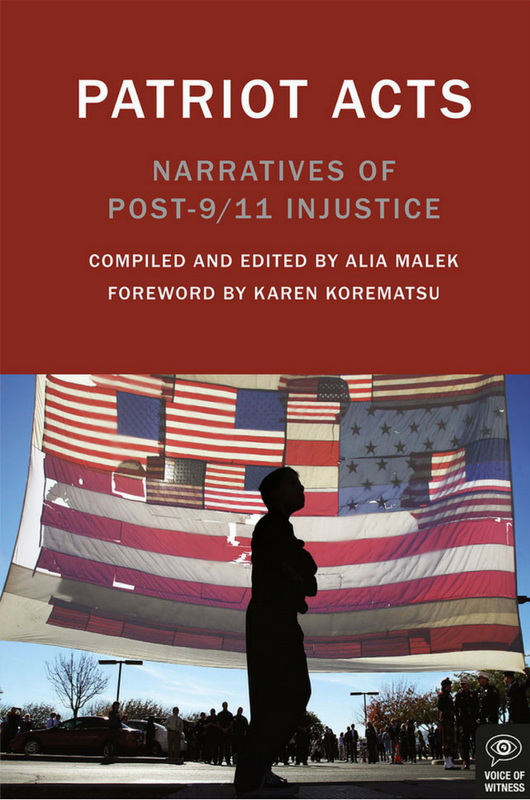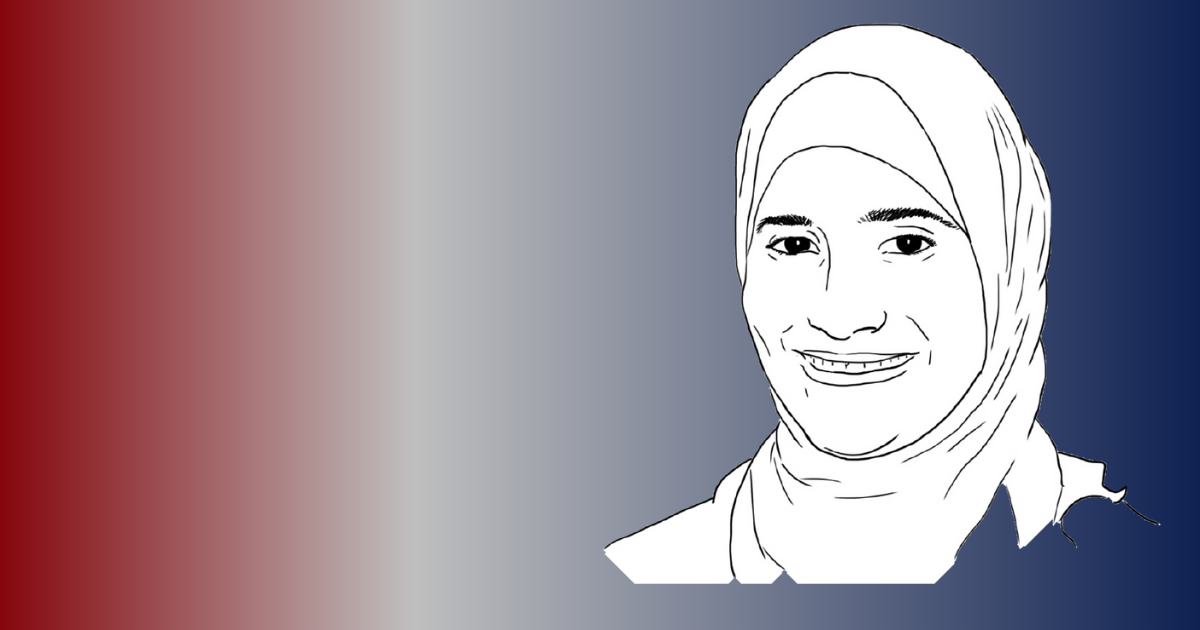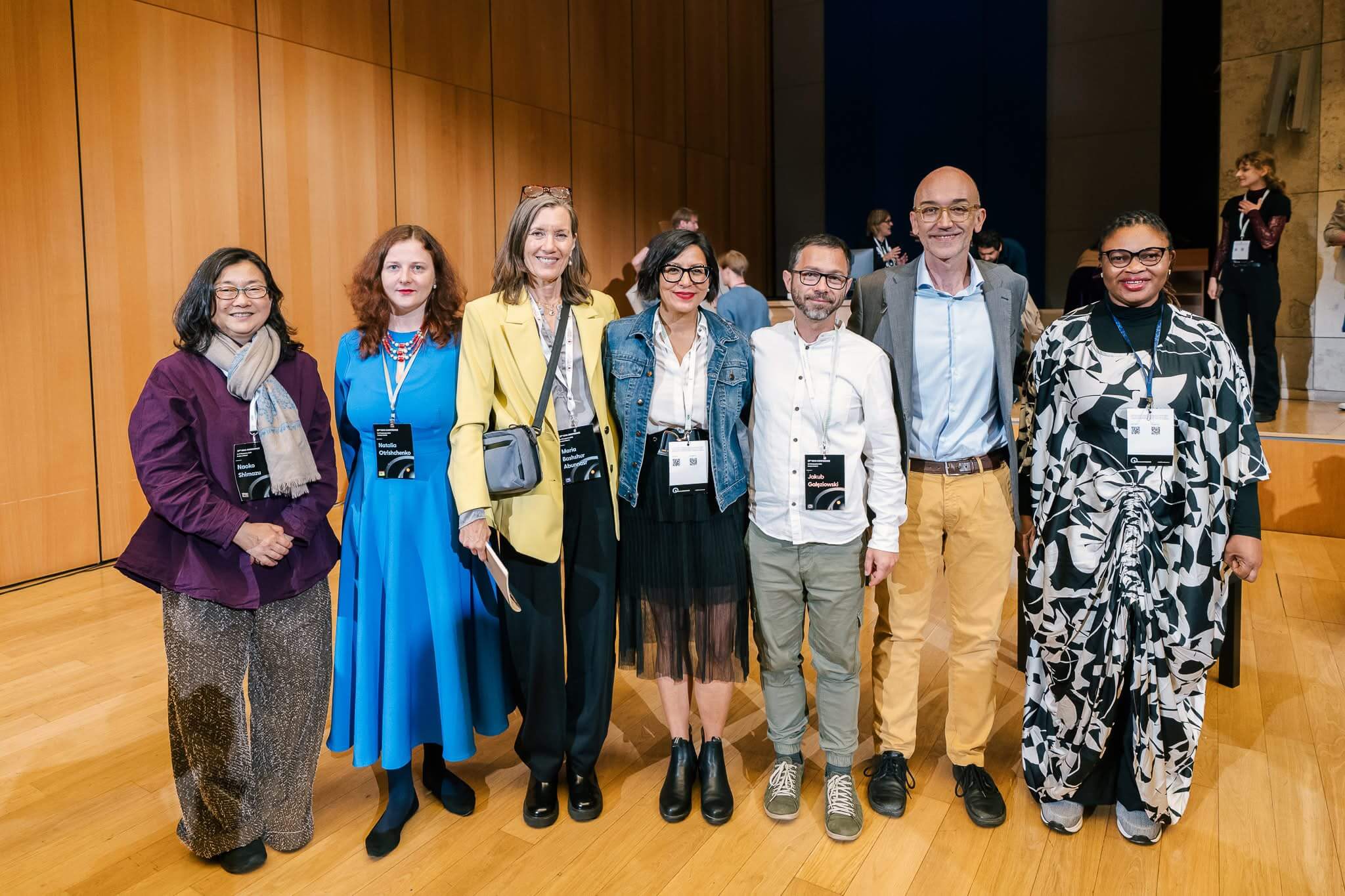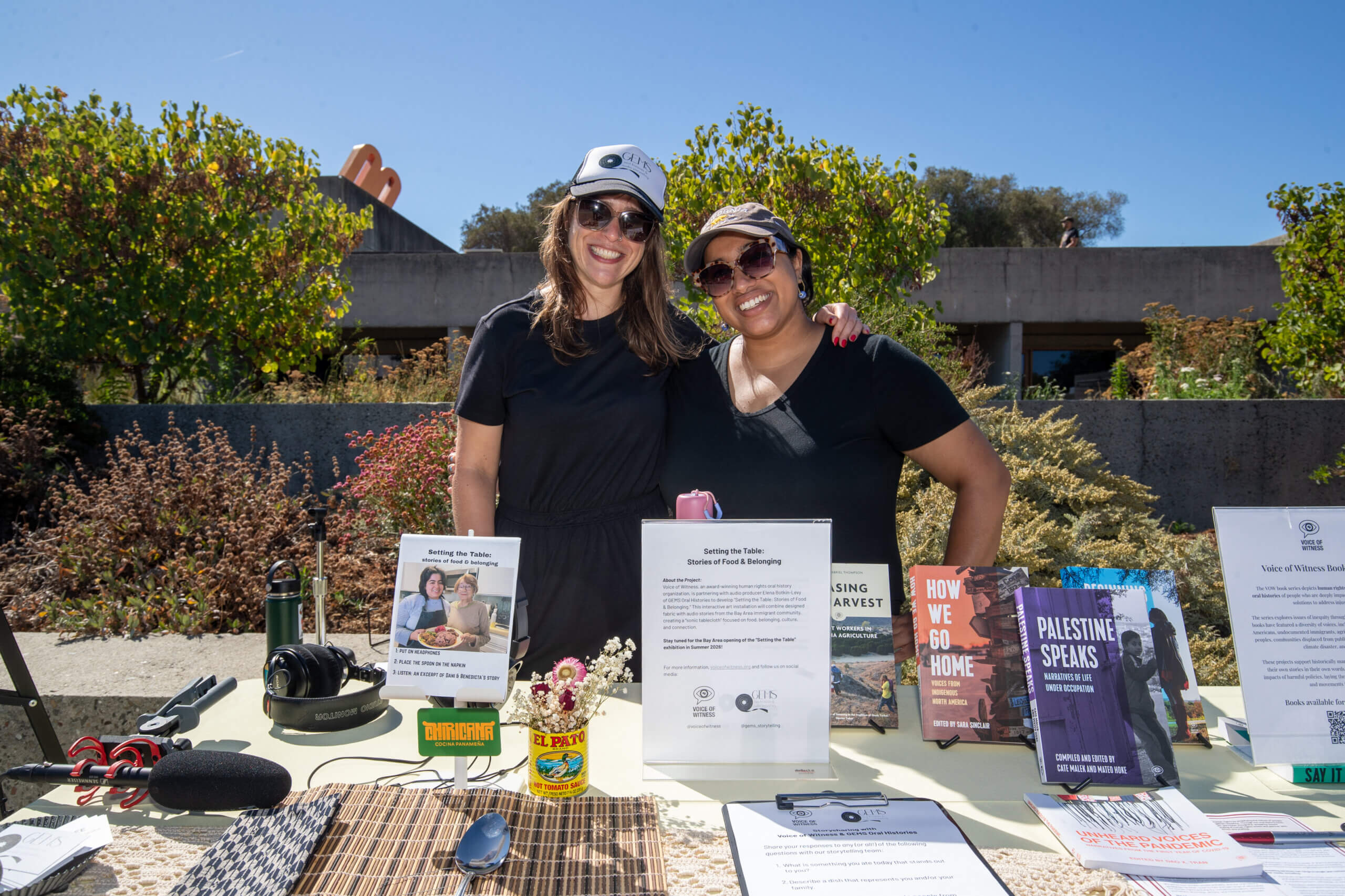2019 marks 10 years for Voice of Witness as a nonprofit, and in celebration of this exciting milestone, we’re resurfacing powerful stories from every oral history book in our series. Though time has passed since these stories were first published, many of the themes and issues they address are as relevant and important as ever.
 In today’s political climate, where threats of mass deportations and travel bans are making the headlines, the issues of civil rights, identity, and belonging explored inside Patriot Acts: Narratives of Post-9/11 Injustice are perhaps more urgent than ever before.
In today’s political climate, where threats of mass deportations and travel bans are making the headlines, the issues of civil rights, identity, and belonging explored inside Patriot Acts: Narratives of Post-9/11 Injustice are perhaps more urgent than ever before.
A groundbreaking collection of oral histories, Patriot Acts tells the stories of men and women who were needlessly swept up in the War on Terror. In their own words, narrators recount personal experiences of backlash after September 11 that have deeply altered their lives and communities.
The eighth book in the Voice of Witness series, Patriot Acts illuminates these experiences in a compelling collection of eighteen oral histories from men and women who have found themselves subject to a wide range of human and civil rights abuses—from rendition and torture, to workplace discrimination, bullying, FBI surveillance, and harassment.
For a limited time, get a free copy of Patriot Acts (just pay shipping!) here, using the code “VOWShipping” at checkout.RIMA QAMRI’S STORY
Rima and her husband Ali had built a happy life for themselves and their five children in a picturesque beach town in Delaware. After the September 11 attacks, Rima’s daughters Sana and Layla were subjected to different forms of harassment and bullying in two Delaware school districts by both students and teachers. They were so traumatized by their treatment that, at different points, the children had to receive home instruction and counseling, and the family moved to another district. Rima’s husband fell into a severe depression and eventually returned to his native Palestine, leaving Rima to support her family.  OSAMA SANA
OSAMA SANA
It was September 11, 2003. When I picked up the kids from school that afternoon, Sana collapsed in my arms, sobbing and crying. She was so emotional that I had to pull over to the side of the road. She asked me, “What does the Qur’an tell us about Christians, Mama? And why did Muslims do 9/11?”
Ali and I hadn’t talked about 9/11 with the kids. They were so young that we’d avoided the topic.
“She’d taught them that Muslims were bad, and that they were responsible for 9/11. She had described Palestinians as enemies of America.”
I let her tell me what happened. She said her teacher, Mrs. C., had taught the class about 9/11 that day. She’d taught them that Muslims were bad, and that they were responsible for 9/11. She had described Palestinians as enemies of America. She’d also said that the Qur’an teaches Muslims to hate Christians, and that Muslims bomb Christians any chance they can get. During that class, one of the kids had said, “Well, Sana’s mom is one of them” and then the kids had started hissing at her and calling her a terrorist. They’d called her names like “Osama Sana.”I was in disbelief. I had to hear from the principal. I wanted to hear that Sana had misunderstood, that this hadn’t really happened. It was so hard to believe. It still is.
When we got home I called the principal about it. She said, “That doesn’t sound like our curriculum. Let me talk to the teacher and I’ll get back to you.” So I asked her to please call me back right away because I needed help understanding what was going on. In the meantime, I comforted Sana the best I could. I told her it was ridiculous what she’d heard from the teacher, and that it wasn’t true at all.
I sent Sana to school the next day. I called the principal again in the morning and waited for her to call me back. By 1:30 p.m. she still hadn’t called, so I went to the school to see her. The receptionist told me the principal was out, so I said I’d wait. While I was sitting in the office waiting area, I saw Sana’s teacher, Mrs. C., coming in to get her mail from the teachers’ mailbox. I said to her, “Hey, are you busy? Do you have a free period? Can we talk?”
She said okay, and we went into her classroom to talk. When I asked her if the principal had talked to her, she said no. I said, “Really? Well, Sana came home in tears yesterday. Can you tell me what happened?”
She said, “I don’t understand. What could you be talking about?”
I asked her about her class on 9/11 the day before, and she said, “Oh yeah, that’s part of our curriculum this year. We have a book that the district ordered.” Then she showed me the book. It was called September 11, 2001, a little paperback book by a textbook publishing company out of Texas called Steck-Vaughn.The cover had a picture of the Twin Towers on fire. I thought it was a very traumatic image for fourth-graders; my daughter was only nine at the time. So I flipped through the book briefly and it was appalling. It was an indictment of Muslims and Arabs. But it wasn’t just the book that was the problem, it was the teacher’s comments that Sana had told me about. I asked her, “Well, did you say those things?
“The cover had a picture of the Twin Towers on fire. I thought it was a very traumatic image for fourth-graders.”
She shrugged her shoulders. She didn’t even deny it. Then, when I told her Sana was really upset, she got very defensive. She said, “Well, today we continued reading it, and your daughter didn’t tell me she had a problem with it.”
I was taken aback. I said, “So after she’s called a terrorist, she’s supposed to stand up and say, ‘But it’s not true’? You know that my daughter is Muslim and you know that this is a very sensitive issue. I’m just shocked.”
She just put her palms up and said, “I didn’t put the curriculum together. You have to go through the district.” The book was actually taught in every fourth-grade classroom in each school in the district, not just ours.
I took the book home and read it. Then I wrote heartfelt letters to the principal, the teacher, and the superintendent, telling them how inaccurate and dangerous this book was.
In the meantime, I told Sana to just plug away, and that I’d take care of it. Some of the school kids continued to call her names, but she still had a good network of friends who were supportive. When you’re nine, that’s what matters. I thought she was doing fine.
The school district never responded to my letters. The principal never got back to me. Whenever I called her office, her secretary always told me she was out. They knew my voice.
So I let it go. I just got busy looking after my kids.




